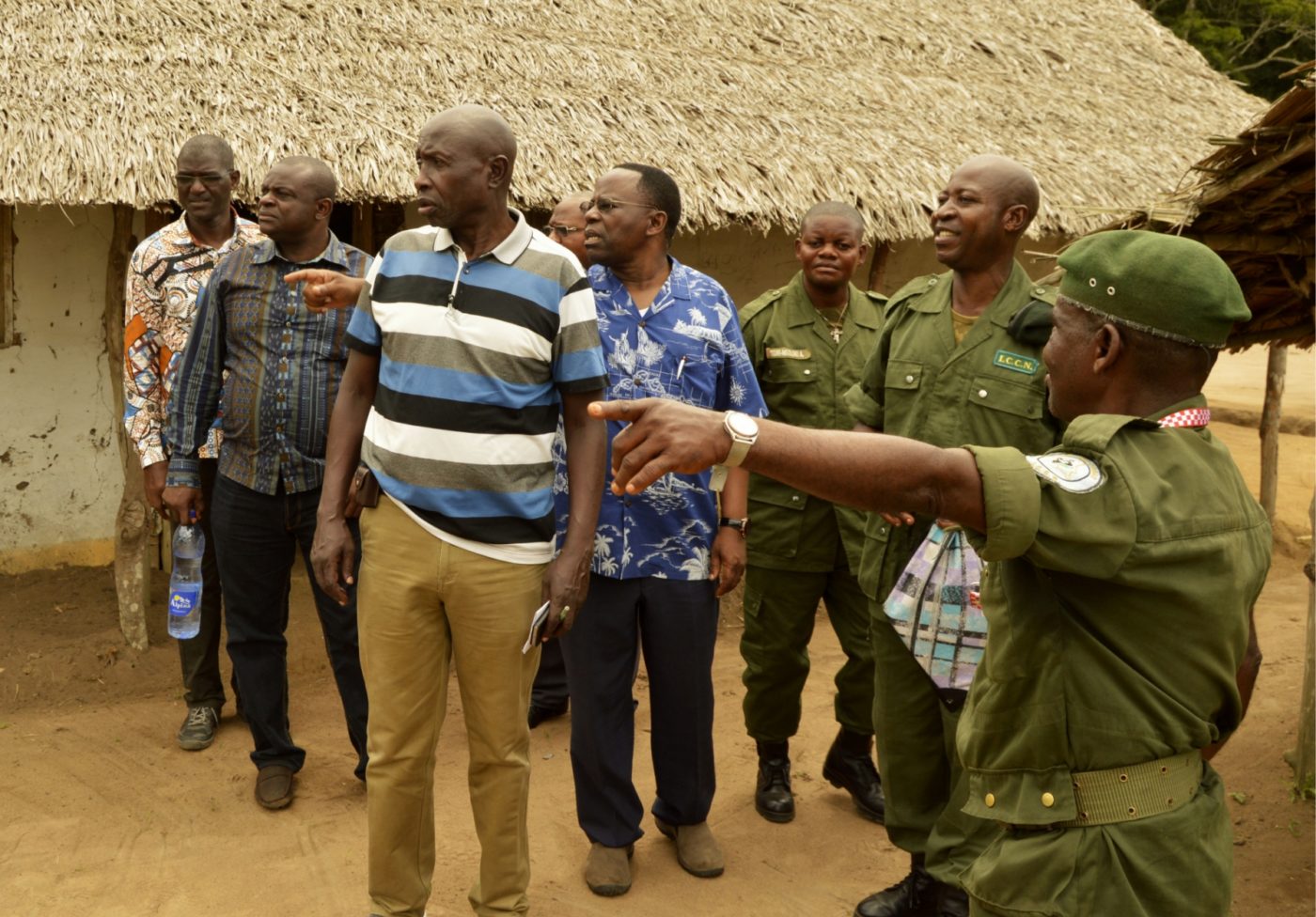Plans to strengthen fight against wildlife crime

A high-ranking delegation from the Corps for the Protection of National Parks and Related Reserves (CorPPN) accompanied by ICCN’s Technical and Scientific Director visited Salonga National Park from 24 to 27 October.
The CorPPN’s aim is to provide an appropriate response to the presence of armed groups in Congo’s protected areas. The current operational resources available to national parks prove to be insufficient to counter the serious threats to wildlife due to the intense poaching perpetuated by these armed groups, which at the same time pose real national security problems.
In Salonga, the generals Maurice Aguru, David Kitenge, Benoit Kisuki and Technical and Scientific Director Jeff Mapilanga continued their inventory of the security situation of the protected areas started in other parks shortly before. The exercise will be continued in all priority protected areas.
The visit served to explain the role of CorPPN to the park management and its technical staff as well as the local authorities and the rangers. The CorPPN will include the rangers currently on duty in Salonga and new ones will be added. New hires will be selected based on tight criteria and benefit from rigorous training in line with the requirements of the effective security of national parks.
Also Interesting
Salonga National Park removed from the List of World Heritage in Danger
On 19 July 2021, the UNESCO World Heritage Committee decided to remove Salonga National Park from the List of World Heritage Sites in Danger.
Elephants populations: encouraging signs in a bai of the North bloc of the parc
The latest report on monitoring park clearings reveals encouraging signs for elephants in a bai of the northern bloc of the park.
Two rangers build their skills at the Garoua Wildlife School in Cameroon
Two eco-guards went to the Garoua Wildlife School in Cameroon for an 18-month training that began in September.
Continuous improvement in Salonga’s management efficiency
Salonga National Park completed its Management Effectiveness Assessment (IMET) for 2018 and it shows significant improvements.
